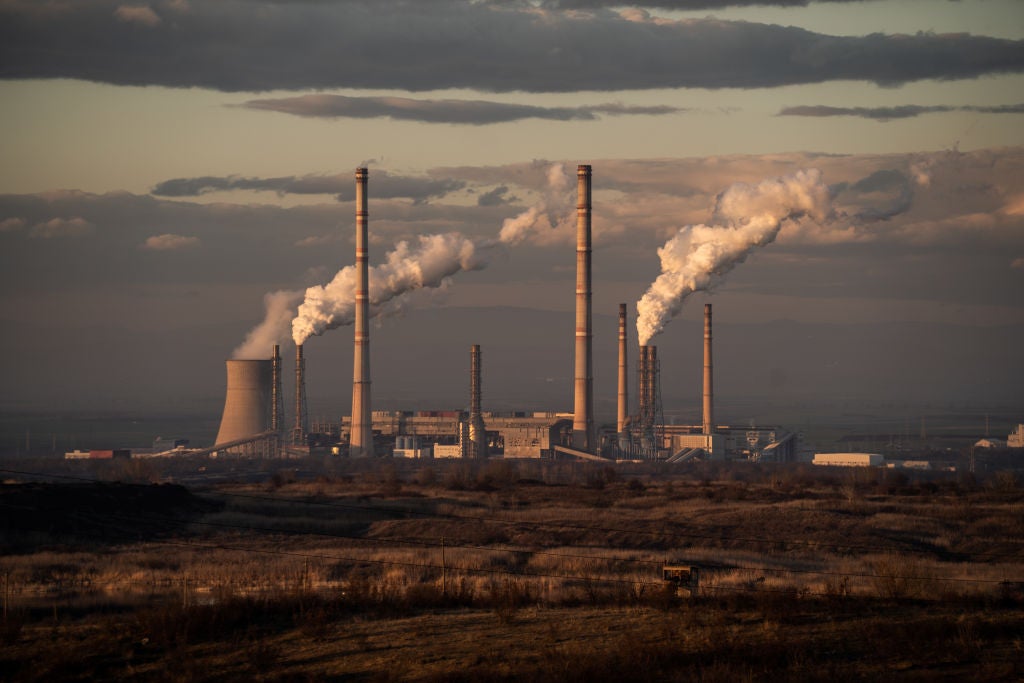After decades of depending on coal, Bulgaria is firmly bidding farewell to the most polluting fuel of them all. Its regions' just transition plans have been approved by the European Commission and millions in EU money is waiting. However, while this transition is more than welcome, a new threat looms around the corner – could fossil coal be swapped for fossil gas in Bulgaria?
A report released today (14 March) by CEE Bankwatch Network shows exactly how switching Bulgaria’s power production from coal to gas is anything but economically sensible. There is no scenario in which the development of gas-fired units is financially viable for the power plants in the study. This analysis comes at a crucial time for Bulgaria’s energy transition as it – along with all of the EU27 – must submit a final National Energy and Climate Plan to the European Commission by June.
From an economic point of view, the two power plant projects that were considered in the study – Bobov dol and Maritsa East 2 – would need to sell electricity at least 40–50% above the “top 20% market percentile” for gas-fired generation to make sense. The wholesale price of gas for large installations used for the calculations is based on a report by the Centre of the Study of Democracy, a think tank based in Sofia, Bulgaria, which projects prices of €27.50 per megawatt-hour in 2030, remaining relatively flat until 2040.
The electricity price would be around four-times the price of electricity produced from solar or wind. In some cases, such as Maritsa East, it is estimated that the installation would require €1.3bn ($1.42bn) in financial support until 2040; in the case of no support scheme, the project would generate a loss with every hour of production. In the case of Bobov dol, an investment proposal from 2021 describes the installation of four gas-fired engines with an electricity production capacity of 39MW. However, to make this investment viable, the installation would require around €68m in support, which is more than 200% more than the expected capital expenditure.
Plans to substitute coal-fired power plants with gas-fired power plants are perceived as an easy fix to energy emissions. In contrast, the creation of a decentralised energy system based on energy efficiency and renewables does not seem to be a priority and occurs in spite, not because of, government policies. Bulgaria lacks direction and strategy, as well as financial and technical planning on how to replace coal-fired power plants. The government’s intention in 2021 was to construct a 1,500MW gas-fired power plant in Maritsa East and finance it with EU money from the pandemic recovery pot. Bulgaria’s National Recovery and Resilience Plan has since been revised, but it remains a prime example of how decision-makers prefer to extend a lifeline to Bulgaria’s biggest fossil energy complex than invest in a sustainable energy system.
The blanket replacement of coal by gas is unrealistic. Our analysis shows that, even as Europe's energy crisis ebbs, fossil gas is set to remain prohibitively expensive. Yet it seems that the Bulgarian Government remains keen to invest in gas, as per the recent deal with Turkish state-owned oil and gas pipeline operator BOTAS, investments in interconnectors with Serbia and Greece, expansion of the Chiren underground gas storage facility and the controversial TurkStream project. These examples alone represent a €4bn commitment to the future of gas transmission – a huge commitment in comparison with other investments in Bulgaria's energy sector.
Even the current Minister of Energy, Rumen Radev, is asking questions. Radev told a session of the parliamentary Energy Committee that there has been no consideration of whether the replacement of coal with gas is technically feasible and within what time frame. Nor has it been established whether Bulgaria would be able to secure the gas imports required to replace 1.6GW of coal with 1.6GW of gas, he added.
In an EU that is working towards slashing its gas consumption, the conversion of coal power plants in Bulgaria to gas would require an increase of up to 150% in Bulgaria’s annual gas volumes, which would result in the need to secure more imports.
A fossil gas build-up is at odds with making the Bulgarian economy climate neutral, as the government has vowed to do in its most recent draft of the National Energy and Climate Plan. It would not only prove expensive, it would also increase the dependence of Bulgaria on imports from undemocratic regimes, most likely for decades, considering long-term contracts are typical for these gas deals. The Commission needs to be clear with the Bulgarian Government that investments in fossil gas and meeting the country’s climate and energy targets are mutually exclusive.
As Bulgaria reviews its National Energy and Climate Plan, this is the right time to change the direction towards adequate and timely investments in renewables and energy efficiency.









